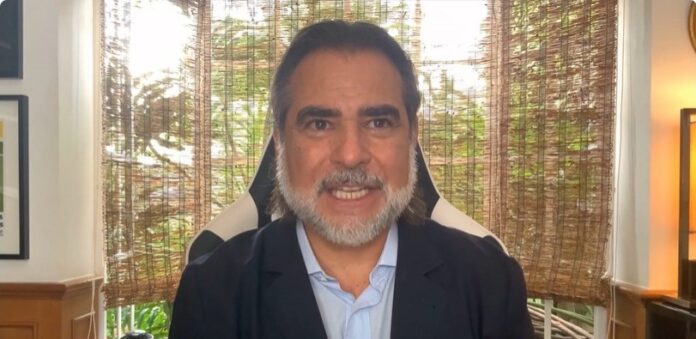Lula has delegated the mission of speaking for the government in the face of the tragedy in the South to a loyal politician, but without a real test in the Executive. Will Pimenta be able to do the job?
The drama in Rio Grande do Sul continues and every day it becomes clearer that the draining of the waters that cover a large part of the lower areas of the state, close to the capital Porto Alegre, will not mean the end of the tragedy. On the contrary. It will only mark the beginning of a slow, painful and costly reconstruction effort. Last week, a hasty calculation published in this space mentioned the need for at least R$100 billion to recover the infrastructure destroyed by the flood and leave it in minimum usable condition. The reality, however, suggests that much more will be required.
The R$100 billion mentioned, in fact, won’t even get the conversation started – and just as important as the money available will be how it is used. The questions surrounding the resources and how they will be used need to be addressed now. The first is: where and how will the necessary funds be found? The other is: how will the priorities for rebuilding the state’s infrastructure be defined?
The answers to these questions are not easy. They should only be obtained through sensible analysis, based on consistent technical data and transparent, reliable information that is shared with everyone. All caution is needed and no possibility should be eliminated. There is no source that can guarantee all the money that will be needed to rebuild what has been destroyed. As far as public services are concerned, private resources will be needed to rebuild what has already been handed over to the private sector, as well as public money from the federal government, the state and the municipalities of Rio Grande do Sul.
In this case, there are several possible alternatives.
One would be to issue public debt bonds, the proceeds of which would be used specifically to help the South. Used with discretion, this mechanism would have a relatively discreet impact on the ratio between debt and GDP and would not, in itself, lead to a maladjustment of public accounts capable of having a significant impact on inflation.
According to the Central Bank, the Net Public Sector Debt currently stands at around R$6.7 trillion. In a scenario like this, R$100 billion more would mean a discreet impact of 1.5% on the total – money that could be diluted in a short time with the gradual reduction in interest rates.
However heterodox it may be, this maneuver would be perfectly justifiable given the emergency that needs to be tackled. This means that, in addition to the already announced three-year suspension of the payment of the state’s debt to the Union and other measures already announced by the Planalto, there are several impact measures that can be taken to shorten the suffering of the people of Rio Grande do Sul.
The problem is not raising money for the South, but the precedent this could set. As has become a tradition in Brazil, where an ox passes, an oxen may pass, and the same instrument used to save the state that was practically submerged could be used at any time by other states at the slightest sign of difficulty. Be that as it may, and however urgent it may be to discuss a solution for rebuilding the state, nothing will be resolved before the mud that covers a large part of Rio Grande do Sul’s cities is removed.
According to a survey published last Thursday by the Porto Alegre daily Zero Hora, no less than 460 of the state’s 497 municipalities have suffered damage – some more, some less severe – as a result of the rains and floods. More than 150 people have died and at least 90 are missing.
More than 538,000 people have been displaced and 72,000 are living in precarious shelters – not to mention the thousands who have been staying with relatives, friends or supportive neighbors.
As of last Thursday, there were around 240,000 addresses in the state without electricity supply and more than 150,000 homes without functioning water and sewage services. On Friday morning, there were 49 roadblocks on the roads in Rio Grande do Sul – making it extremely difficult for people and goods to move around the state. Is this or is it not enough to justify more energetic action to obtain the resources?
NEW ORLEANS – The insistence on describing the damage caused by a tragedy that hasn’t left TV programming or the pages of newspapers for more than two weeks only makes sense to reinforce what we already know: the solutions won’t be easy. No one will be able to save Rio Grande do Sul from the difficulties that await it if the people involved in this work – especially the authorities – are only interested in cleaning up their own backyard and don’t care if their neighbor’s is in tatters.
Ideally, at a serious time like this, everyone should unite around the same purpose and work to solve the problems that afflict the people of Rio Grande do Sul, rather than trying to make political money from the measures that are taken now.
There is no shortage of work. The effort to get the state working again will be gigantic. The first step will be to exhaust all possible efforts to locate the missing, in the hope that they will be found alive.
At the same time, it will be necessary to remove the mud that covers a large part of Rio Grande do Sul’s cities. It will also be necessary to collect the remains of putrefied animals that are already beginning to stink in various parts of the state, to make sure that people are safe from contamination by the diseases that arise in situations like this and, only after that, to take stock of the extent of the damage.
Important measures will have to be taken which, at first, don’t even cross the minds of those who are moved by the tragedy. One of them, for example, will be to collect and dispose of the thousands and thousands of cars, trucks and tractors that were rendered useless by the flood. If they are abandoned and dumped anywhere, the oil and other engine fluids could leak out and further contaminate a soil that, even without further aggression, will already struggle to recover.
It will, of course, take much more than that and the effort will have to be made by both the public and private sectors. It will be mandatory to rebuild hospitals, restore Salgado Filho airport, resurface damaged roads and, as far as possible, restore everything that was washed away – a job that could take years.
It will be necessary to rebuild a new state on the rubble of what was washed away. This reconstruction, if managed well, can result in opportunities to fix what didn’t work well and improve what was already working. But if it’s handled in haste, it could make things even worse and bring back problems that were no longer part of the gauchos’ routine.
It won’t be easy and the world offers examples of the difficulties that await the people. The reconstruction of the historic center of the North American city of New Orleans, destroyed in 2005 by the wind and floods caused by Hurricane Katrina, for example, dragged on for more than a decade – even though the United States is a much richer, more organized and less bureaucratic country than Brazil. And even though the affected area was much more concentrated than Rio Grande do Sul.
Even so, it was difficult to agree on what should start first and what would have to wait a while. What’s more, six or seven years after Katrina, there were still marks of its passage on the banks of the Mississippi River and elsewhere in the city. What about Rio Grande do Sul?
It’s too early to make any predictions, but initial impressions are not encouraging.
Instead of the unity of purpose needed to alleviate the suffering of those who have lost everything and speed up the reconstruction of a state that needs to get back to work and walk on its own two feet, what we see is the open practice of political maneuvers designed to take advantage of the disaster.
MULTIPARTY FRONT – Having said all that, let’s get down to the political facts surrounding the situation. If President Luiz Inácio Lula da Silva’s intention in creating the Secretariat to Support the Reconstruction of Rio Grande do Sul – which will have the status of a ministry and will be the 39th portfolio in his government – was to signal that the Planalto is attentive to the afflictions of the people of Rio Grande do Sul at this time of tragedy, entrusting this mission to Minister Paulo Pimenta may require a degree of caution. His lack of experience in matters related to the thornier side of public administration could be seen as a disadvantage for the post.
The new minister is a native of Rio Grande do Sul and a veteran of his state’s left-wing movement. He is a career politician and has never tried to hide it from anyone. Since 1988, when he became a councillor in the municipality of Santa Maria at the age of 23, he has never been out of office. He has always served in the legislature – with the exception of the two years he spent as deputy mayor of his hometown of Santa Maria, between 2001 and 2002.
Elected for the first time in 2002, he would now be serving his sixth consecutive term as a federal deputy if Lula hadn’t called him to join his team as minister of the Secretariat for Social Communication of the Presidency of the Republic. A journalist by training and an eloquent speaker, he hasn’t had any administrative experience in his career that would have encouraged his name to be immediately accepted to take on a delicate and demanding job such as the reconstruction of Rio Grande do Sul.
RED JAKE – This is the point that matters.
By choosing a politician with Pimenta’s profile to lead the new ministry, Lula may have tried to solve two problems with a single stroke of the pen. Firstly, he has placed a name of his absolute confidence in a ministry that will have a very generous budget, capable of arousing greed in anyone. What’s more, he has given visibility to a co-religionist who, if he does well in the job, could fill a gap that his party lacked in the south of the country. A name in a position to run for state government in 2026. Whether this works or not will depend solely on Pimenta’s ability to find the right answers to the challenge ahead of him.
No surprises from the president. Lula is like that. It’s not the first time he’s acted as if creating a ministry was enough to solve a complex problem. During the 2022 election campaign, the then candidate presented the creation of what he called, at the time, the “Ministry of Original Peoples” as a solution to the drama facing the indigenous Yanomami nation.
Elected, he kept his promise and appointed Sônia Guajajara as head of the office, which was officially renamed the Ministry of Indigenous Peoples. The results of the minister’s work have left something to be desired and she has attracted more attention for covering her head with a more showy headdress at every ceremony she attends than for solving the problems entrusted to her. In the specific case of the Yanomami people, the situation has even worsened under the current government. In 2023, Lula’s first year, malaria, malnutrition and diseases caused by contamination caused more deaths among the Yanomami than in 2022, Jair Bolsonaro’s last year.
As for the ministry entrusted to Pimenta, all that can be said now is that the mission will be difficult.
From the outset, it will require technical competence and administrative sensitivity in sufficient doses to define priorities in the use of resources that, however abundant they may be, could disappear along with the waters of the Guaíba if they are not used with discretion. In this scenario, the minister has already made his debut in office, giving his opponents cause for criticism that only time will tell if it makes sense or not.
At the ceremony held in the auditorium of the University of Vale do Rio dos Sinos, in São Leopoldo, last Wednesday, when Lula announced the first aid programs for Rio Grande do Sul, everyone present, starting with the President of the Republic, wore discreet blazers or vests from the Civil Defense of Rio Grande do Sul. This, for justifiable reasons, has become Governor Eduardo Leite’s work uniform since the tragedy began.
Pimenta, on the other hand, presented himself in a red jacket – the color of his party – which contrasted with the sobriety demanded by the moment. It was as if he were attending a wedding party in costume. As well as choosing an outfit that was inappropriate for the moment – but perfectly suited to his purpose of sending a political message – the minister was also accused of overdoing the tone of his speech. For many people, his exalted speech seemed to fit in more with an election campaign than with a meeting aimed at finding solutions to the tragedy afflicting hundreds of thousands of people affected by the tragedy.
Be that as it may, the fact is that it will take a lot more than a red jacket to turn Pimenta into a viable candidate for the government of Rio Grande do Sul. In the same way, the suit won’t be enough to make his claims unfeasible.
TECHNICAL AND PLURAL – The party’s record in the state is not one of the most comfortable – above all because it has not shown itself capable of taking advantage of the chances it has already been given by the voters of Rio Grande do Sul.
Not to mention the negative marks left by Olívio Dutra, who governed the state between 1999 and 2003, Tarso Genro’s more recent presence in the Piratini Palace, between 2011 and 2015, also caused severe scratches to the party’s reputation in the pampas.
And the PT has paid for this with every election since then. In the second round of the 2022 presidential elections, to cite just one example of electoral fragility, Lula won 43.65% of the votes in the state, while his opponent Jair Bolsonaro won no less than 56.35%.
Be that as it may, this is a secondary problem. If Pimenta, contrary to all expectations, delivers a technical and pluralistic performance at the head of the new ministry and delights the people of Rio Grande do Sul with actions that hasten the end of their woes, nothing could be fairer than giving him the opportunity to govern Rio Grande do Sul.
If, however, he favors only his allies and undermines everyone else, overrides the authority of the local government and takes measures that don’t mean adding up, but dividing up the efforts and resources made available to save the state, he will only be giving reason to his critics and prolonging the suffering of the people. Which, in this case, instead of adding, will deny the PT and its candidates votes that could make all the difference in elections from now on.


